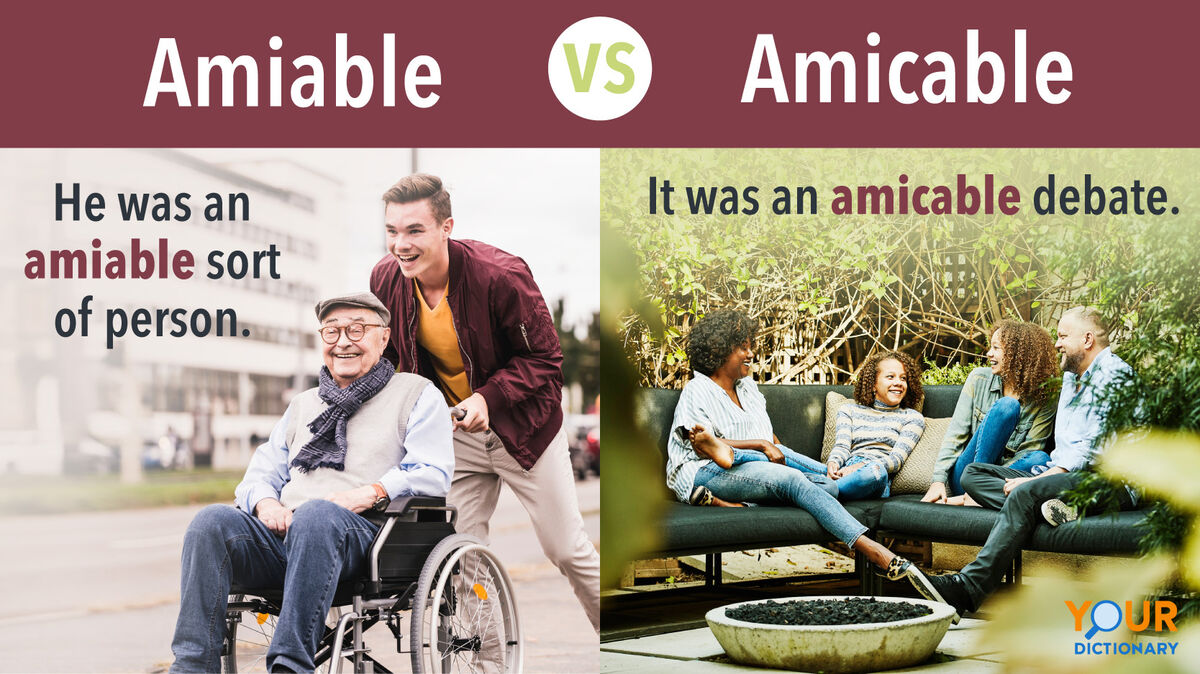
At first glance, amiable and amicable look like they could be different forms of the same word. Indeed, their meanings are quite similar. However, their meanings differ and so do their uses.
The Difference Between Amiable and Amicable
Amiable and amicable are both adjectives that come from the same root. Amiable comes from the Old French term amiable which means “trying to please,” and both amiable and amicable are derived from the Latin word amicus, meaning “friend.”
amiable - kind, friendly or sociable
amicable - pleasant or peaceable
When and How to Use Amiable
Amiable is defined as “having a friendly disposition” or someone or something that is “agreeable.”
Everyone likes him because he’s an amiable sort of person.
She was an amiable hostess capable of smoothing over even the most awkward interaction.
Their home has a very amiable vibe.
Using Amicable in a Sentence
The adjective amicable usually refers to the relationships or interactions between people and means “pleasant” as well as “without disagreement or discord.”
My parents have an amicable relationship, despite their divorce.
Although opinions were flying fast and furious, in the end it was an amicable debate.
We didn’t agree on everything, but still, we reached an amicable agreement.
Remember the Difference
Amiable and amicable are understandably sometimes used interchangeably since they both refer to friendliness and pleasantry. However, there is a way to remember the distinction between them.
The only difference between the spellings is a “c.” Since amicable applies to events and situations between multiple people, you can associate the “c” with words like “crowd” or “crew.”
Friendly Reminders to Choose the Correct Word
Choosing the right word can be difficult. That's why it's nice to have friendly reminders about how to distinguish between commonly confused words and choose the correct one. Once you review the basics, check out other commonly confused words like conscience and conscious or continually and continuously.